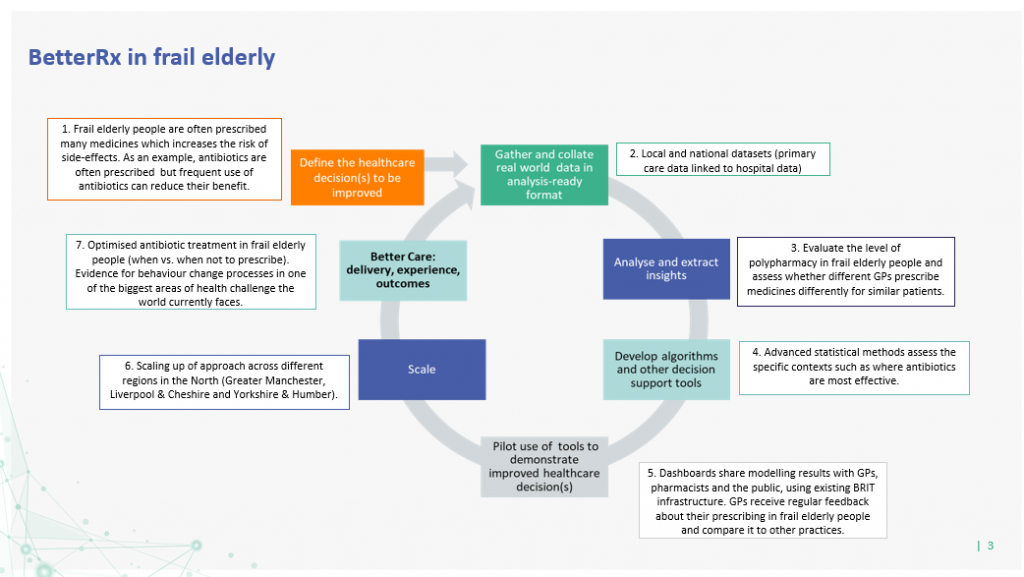Better antibiotic prescribing in frail elderly people with polypharmacy
This project aims to use an advanced analytics approach to support doctors in deciding when to prescribe antibiotics to frail elderly patients, avoiding the adverse side effects of inappropriate prescribing.
The challenge
Antibiotics are medicines used to treat bacterial infections. Frail elderly people are often prescribed antibiotics when they go to their doctor for a variety of reasons; however, it is frequently unclear to the doctor whether or not to prescribe antibiotics. Frail elderly people already receive many medicines, increasing the risk of side-effects. In addition, frequent use of antibiotics may increase the potential for antimicrobial resistance which is a considerable global health challenge.
The solution
This project – BetterRx – aims to optimise the use of antibiotics allowing better care of frail, elderly people. The team will use local and national datasets to evaluate the level of polypharmacy in frail elderly people and assess whether different GPs prescribe medicines differently for similar patients. Advanced statistical methods will be used to assess whether antibiotics are effective in frail elderly people, and in which specific contexts and patients. The results will be shared with GPs, pharmacists and the public to develop a shared understanding of problems and potential actions to improve prescribing and outcomes. BetterRx will then give GPs regular feedback about their prescribing in frail elderly people and compare it to other GPs.
The overall aims of BetterRx will be to apply advanced analytics to establish appropriate antibiotic use in frail elderly people, to develop data-driven tools that engage clinicians to support effective prescribing, optimise the usage of these tools by highlighting variability in care and evaluate their effectiveness in improving appropriate prescribing.
The impact and outcomes
BetterRx aims to roll-out an analytics-based knowledge repository across the entirety of UK primary care, initially supporting antibiotics prescription in frail elderly people but eventually scaling to other clinical areas in primary care.
The clinical impact will be to optimise antibiotic treatment in frail elderly people (when vs. when not to prescribe), which will reduce inappropriate antibiotic use, potential risk of interactions, and adverse effects of treatment.
The estimated impact of this project would go far beyond a financial return and the saving associated with appropriate medicine usage. It will provide evidence for behaviour change processes in one of the biggest areas of health challenge the world currently faces – antimicrobial resistance – and in a group of patients with substantial and unmet clinical needs – frail elderly people.
Better Care Loop
Project team
Tjeerd van Staa, Professor of Health eResearch, University of Manchester
Iain Buchan, Chair in Public Health and Clinical Informatics, University of Liverpool




